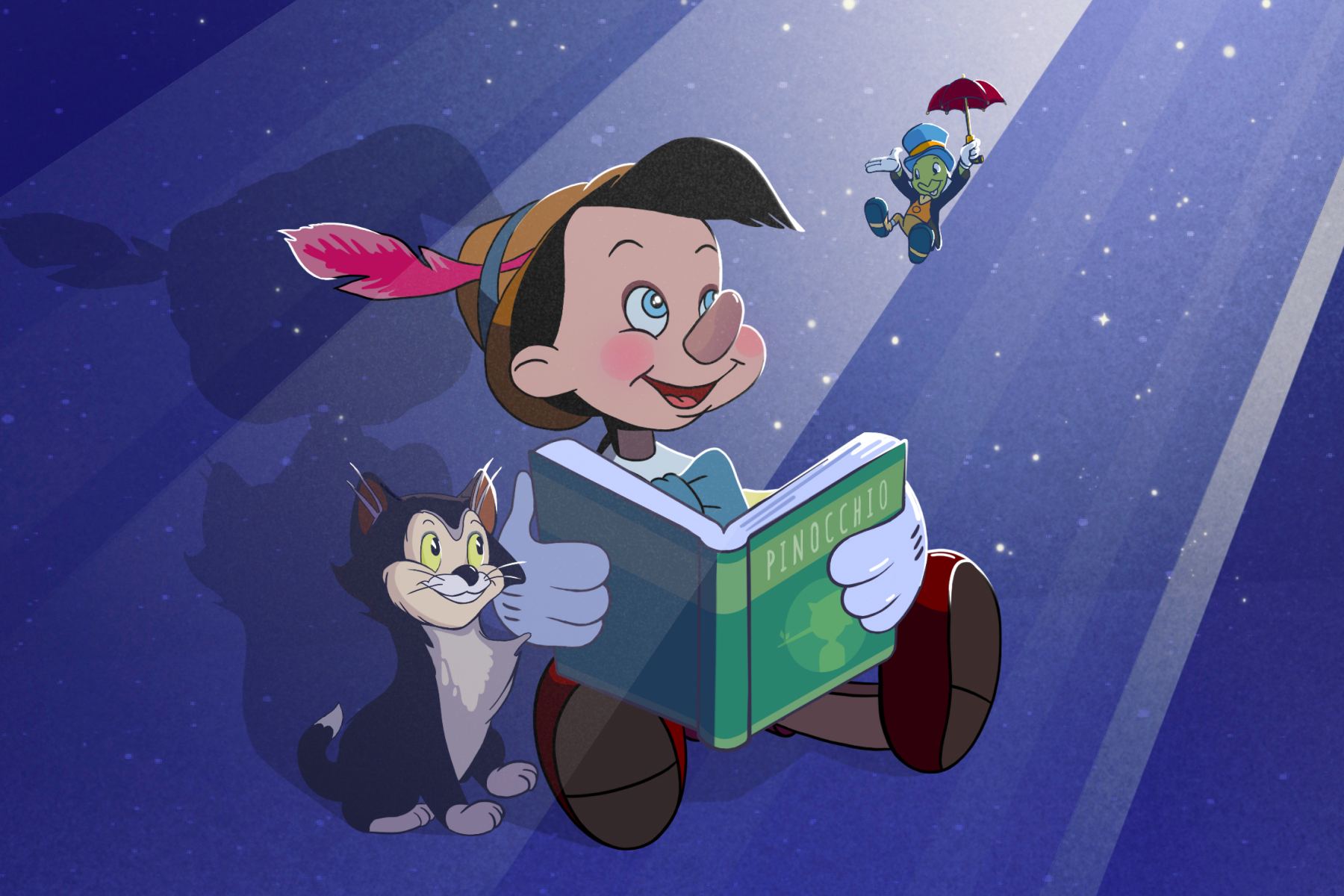“The Adventures of Pinocchio” by Carlo Collodi is a classic piece of children’s literature. It has been translated into over 250 languages, making it the most translated book after the Bible. It has many different adaptations for film and television, including Disney’s 1940 adaptation, which revolutionized the way effects such as water and smoke were added into 2D animation. Pinocchio has since been depicted as everything from an AI to a horror villain and with two new Pinocchio adaptations scheduled to come out later in 2021, Pinocchio’s story is here to stay.
The Origin of Pinocchio
Pinocchio’s author, Carlo Collodi, dove into children’s literature when he became disenchanted with his career in journalism and politics. He began translating French fairy tales into Italian and after a while, decided to create some of his own. Collodi published the first version of “The Adventures of Pinocchio” in a children’s magazine in Tuscany, Italy. This first iteration of Pinocchio is quite grim. Pinocchio makes a half-hearted attempt at behaving, but he is ultimately spiteful and selfish. The story ends with Pinocchio getting tricked, attacked and later killed. That’s it: Pinocchio, the hero of the story, ends up dead.
And yet, the kids loved it. They loved it so much that Collodi’s publisher wanted more, so he wrote a longer, second half, creating the story that is so well-known today. The second half of the book essentially brings Pinocchio back to life and allows him to continue his adventures. The experience must have done him some good because post-death Pinocchio is much more sympathetic and even though he fails, it’s implied that he’s trying very hard to be kind and responsible. The second half also introduces the most recognizable through line Pinocchio has to offer: Pinocchio wants to become a real boy.
Why Pinocchio Sticks
Pinocchio’s story is entertaining for children, but it’s also become a classic in children’s literature. After all, there must be more to children’s stories than juvenile misadventures, fairies and talking animals. Pinocchio’s story resonates with people and there are a few reasons why.
First, there’s Pinocchio’s relationship with his father, Geppetto. It’s a simple relationship, where Geppetto is the long-suffering parent to the distractable and disobedient Pinocchio. Geppetto makes sacrifices to give Pinocchio a comfortable life and a quality education, but Pinocchio is resentful. It’s not until after Pinocchio’s abrupt death and resurrection that he begins to appreciate what Geppetto does for him. The story culminates in a scene where Pinocchio must make a sacrifice of his own and risk his life to save Geppetto’s. It shows how he has grown from an impulsive child to a responsible son.
Themes like filial duty and self-sacrifice are solid, but they’re not the most meaningful parts of Pinocchio’s story. During the book, Pinocchio decides that he’s not satisfied with being a marionette. He wants to become “real.”
It’s this idea, the idea of what it means to grow up and become a real person, that has resonated through the generations. Many of Pinocchio’s problems occur simply because he’s a marionette trying to navigate a world designed for humans. He is small and therefore targeted by bad actors and overlooked by authority figures. He’s made of wood and risks getting thrown like a log in a fire. He’s a marionette so he is used as a commodity by adults and although he makes friends with human boys, he’s more of a joke and a spectacle to them.
For example, Pinocchio tries to fit in with his schoolmates by playing hooky, but his journey stalls when he and his friends are turned into donkeys. In this way, he gets what he wants in the cruelest way possible. He gets flesh and bone and becomes just like his friends, but he is unable to make progress.
The idea that Pinocchio feels out of place and wants to be something else is a theme that can be examined, recontextualized and retold. What being “real” means can be reinterpreted for new audiences. His story can be an exploration of gender identity, growing up or any instance where people feel uncomfortable in an environment or in their own skin. Sure, there are fairies and talking animals, which are entertaining enough, but Pinocchio has lasted because of the flexible yet poignant themes that are easily reshaped for new audiences.
In the book, Pinocchio achieves his goal. He turns into a human, with strong legs that can keep up with other children and the possibility to grow into an adult. Each adaptation has a different take on the ending. Depending on the interpretation, he could learn to love himself and stay the way he is, or change and improve for the better.
Pinocchio’s Legacy
“The Adventures of Pinocchio” might have started out as a cautionary tale to encourage children to respect their parents, but like the titular character, the story has grown with time. The original story is strange and entertaining, but it’s the pervasive themes that have inspired so many to read and retell this century-old story. Since the book is in the public domain, it’s completely free to read. What it means to be “real” and what it means to be accepted are topics that people still think about. There are two new Pinocchio adaptations reportedly coming out in 2021. The first is a live-action Disney remake of the 1940 animated film. The second is a stop-motion film that will show Pinocchio trying to transform into a real boy during a WWII-era fascist Italy. With new ways to explore his themes and character, Pinocchio’s story is far from finished.

















